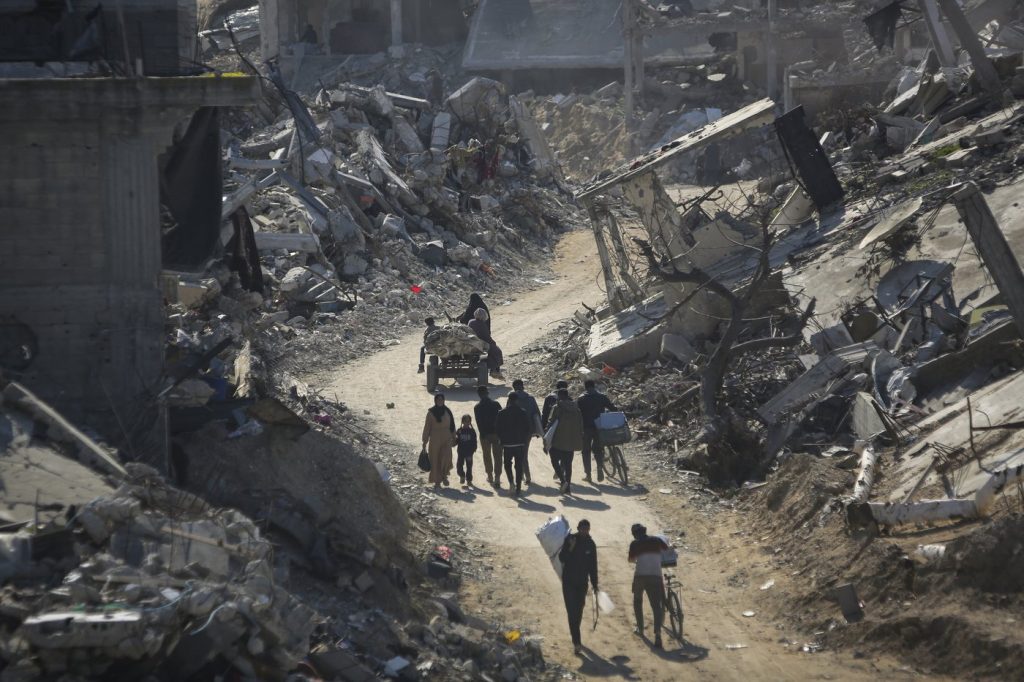JERUSALEM (AP) – In a notable development in the ongoing conflict between Israel and Hamas, officials reported that Hamas will release three Israelis—including two women and an 80-year-old man—as well as five Thai nationals in a hostage exchange scheduled for Thursday. This announcement comes as the fragile ceasefire between the conflicting parties continues to hold, after a series of negotiations aimed at alleviating the humanitarian crisis resulting from the war in Gaza that began on October 7, 2023.
The Israeli hostages identified include Arbel Yehoud, aged 29, Agam Berger, aged 19, and Gadi Moses, an 80-year-old man. Their identities were disclosed by officials who requested anonymity, stating that the families of the hostages had consented to the release of their names. The specific identities of the five Thai nationals have yet to be made public. During the initial attack by Hamas on October 7, 2023, a substantial number of foreign workers were taken captive alongside Israeli civilians and soldiers.
This anticipated release is part of an ongoing agreement where Hamas gradually releases hostages in exchange for the release of hundreds of Palestinian prisoners held by Israel. Under a negotiated process mediated by the Biden administration, the ceasefire has so far halted the nearly 15-month-long conflict. The agreement allows for the release of hostages and prisoners in phases, with this week witnessing two scheduled releases.
The intricacies of the deal have been influenced by diplomatic interventions, particularly after Israel insisted on including Arbel Yehoud in the earlier hostages released over the weekend. Following her exclusion, Israel paused the movement of large numbers of Palestinians trying to return to their homes in the war-impacted northern Gaza. Consequently, international mediation facilitated the planned release on Thursday and allowed Palestinians to re-enter their neighborhoods.
The significance of Thursday’s exchange, which had not been initially scheduled, points to the delicate state of the ongoing ceasefire. Another release event is planned for Saturday, which will focus on the liberation of male hostages, while dozens of Palestinian prisoners are also expected to be released during this time.
On a separate note, discussions surrounding the resettlement of displaced Palestinians have emerged, particularly after President Donald Trump suggested that Egypt and Jordan accept refugees from Gaza. However, Egypt swiftly rejected this proposition, emphasizing its commitment to a two-state solution instead of allowing the displacement of Palestinians. Egyptian President Abdel Fattah el-Sissi labeled the suggestion "an injustice" and affirmed that the solution should involve the establishment of a Palestinian state rather than relocating its people.
The backdrop of the conflict has been severe, with local health authorities reporting over 47,000 Palestinian casualties, predominantly women and children. The ongoing war has resulted in the mass displacement of approximately 90% of Gaza’s 2.3 million residents, contributing to an escalating humanitarian crisis. Critics of the suggestion for relocation worry that settling Palestinians in neighboring countries could undermine the pursuit of a future Palestinian state, a concern echoed by both Egypt and Jordan.
Despite Egypt and Jordan's peace treaties with Israel, both nations remain supportive of Palestinian statehood, fearing that a permanent relocation of Gaza’s population would jeopardize the viability of a Palestinian state in the broader context of the Israeli-Palestinian conflict. Their strategic positions, reinforced by substantial U.S. military aid, exemplify the complexities of international alliances and regional politics in the Middle East.










